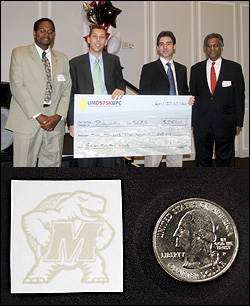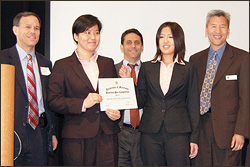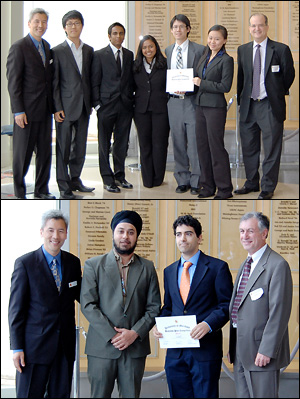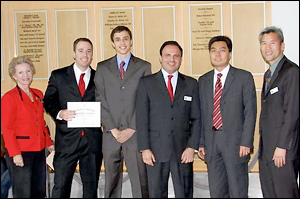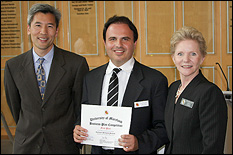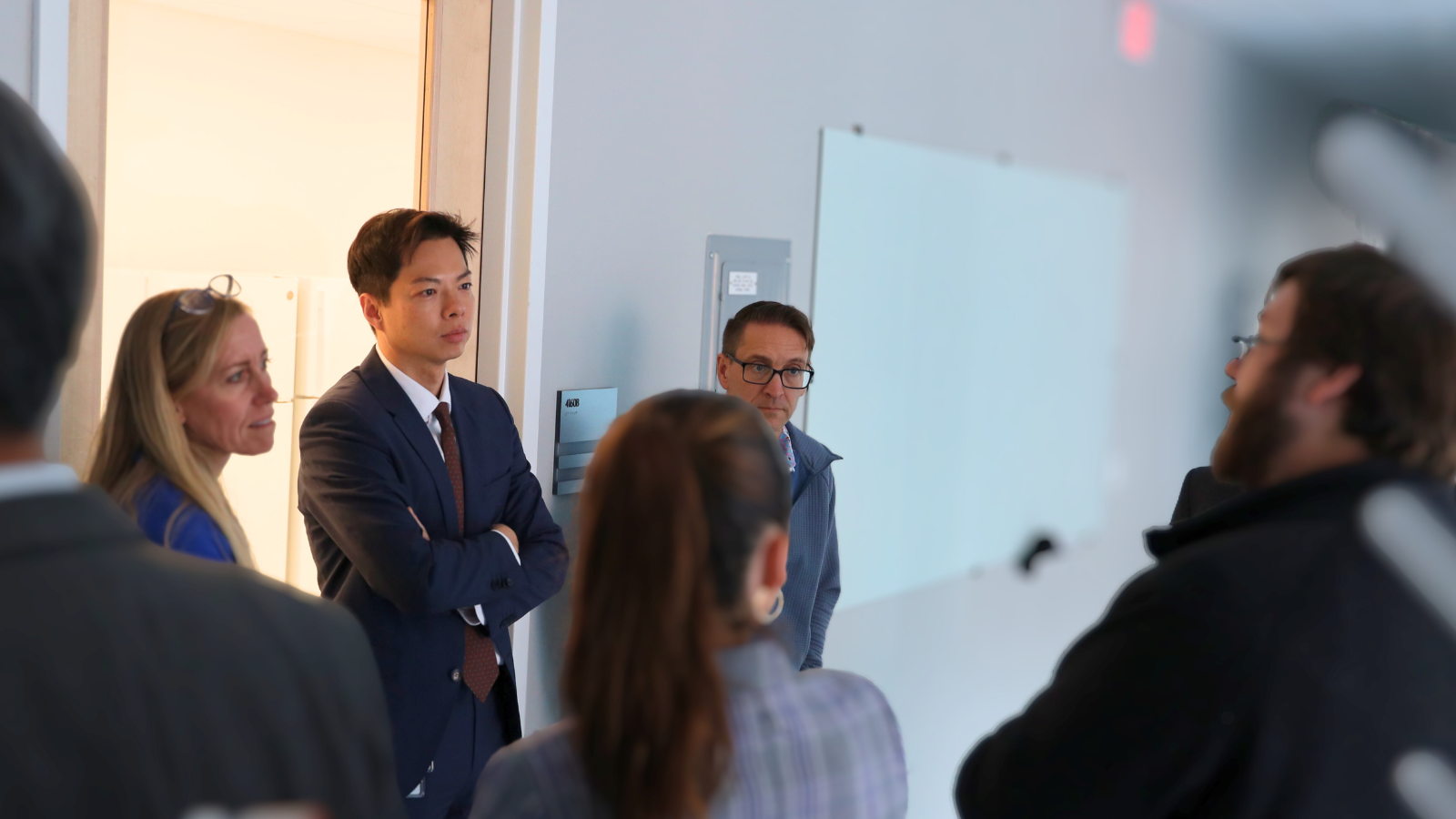News Story
PolyVec Systems Dominates Business Plan Competition
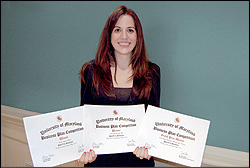
PolyVec Solution's Irene Bacalocostantis with her awards.
In addition to the prize money, the young company is eligible for one free year in Mtech's TERP Startup Laboratory a program designed for entrepreneurs who need a place to quickly develop technology prototypes and get some help in launching their companies.
PolyVec Systems won $25,000 and the Lockheed Martin Grand Prize in the High Technology & Biotechnology division for their development of a synthetic polymer carrier that delivers therapeutic genes directly to breast cancer cells. The company also won the $10,000 Maryland Biotechnology Center Best Biotechnology Company prize, and a second place, $10,000 Warren Citrin Social Impact Award.
PolyVec Systems' carrier is designed to improve the safety, efficiency and efficacy of breast cancer treatments. By improving the successful delivery of gene therapy options developed by pharmaceutical companies, it will reduce the cost of treatment, the need for more radical procedures such as mastectomies, and the side effects of chemotherapy and radiation. The carrier's strength is its ability to sense when it has been taken up by a breast cancer cell's vacuole (a compartment that assists in cellular digestion). Only then will it activate, swelling until it ruptures the vacuole, then degrading and releasing its genetic cargo into the cell. The technology can ultimately be adapted to treat other types of cancer as well.
This was the fourth year in a row that one of Kofinas' companies reached the final round of the competition, and his third and fourth wins. In 2009 and 2008, Trauma Solutions (co-founded by Brendan Casey [Ph.D. '10]) and Intelligent Packaging Systems (co-founded by 2007 Fischell Fellow Dan Janiak, Ph.D. '09) won their divisions, and in 2010 PoLiion was in the running.
"I had a great time putting together the business plan and I learned a lot," says Bacalocostantis. "My mentors Craig Dye from Mtech and Foundercorps member Donna Harris are wonderful, as is the entire Mtech staff. I'd recommend anyone who is even slightly interested in industry try out for the competition."
"I am very proud of Irene," says Kofinas. "She worked really hard. We hope our technologies will translate into future products that will improve the quality of life of millions living with cancer."
Another team with co-founders from BioE, Ibis Microtech, whose members include 2008 Fischell Fellow Marc Dandin and BioE postdoctoral research associate Roland Probst, was also a finalist in the High Technology & Biotechnology division. Ibis Microtech seeks to provide medical professionals, food quality control technicians, first responders, and national defense agencies with cost-effective diagnostic devices capable of performing fast, laboratory-grade analyses on-site.
The annual $75K Business Plan Competition promotes the commercialization of innovative ideas and University-created technologies by offering faculty, students, and alumni prizes for the best new venture plans. The competition emphasizes learning by offering one-on-one coaching for finalists, as well as the experience of presenting ideas to an experienced panel of judges. Companies active in the competition have generated millions in revenues, grants and awards.
For more information about the 2011 competition, teams, judges, sponsors and supporters see:
BioE has maintained a strong presence in the competition over the past several years. For more information, see:
Published May 10, 2011
